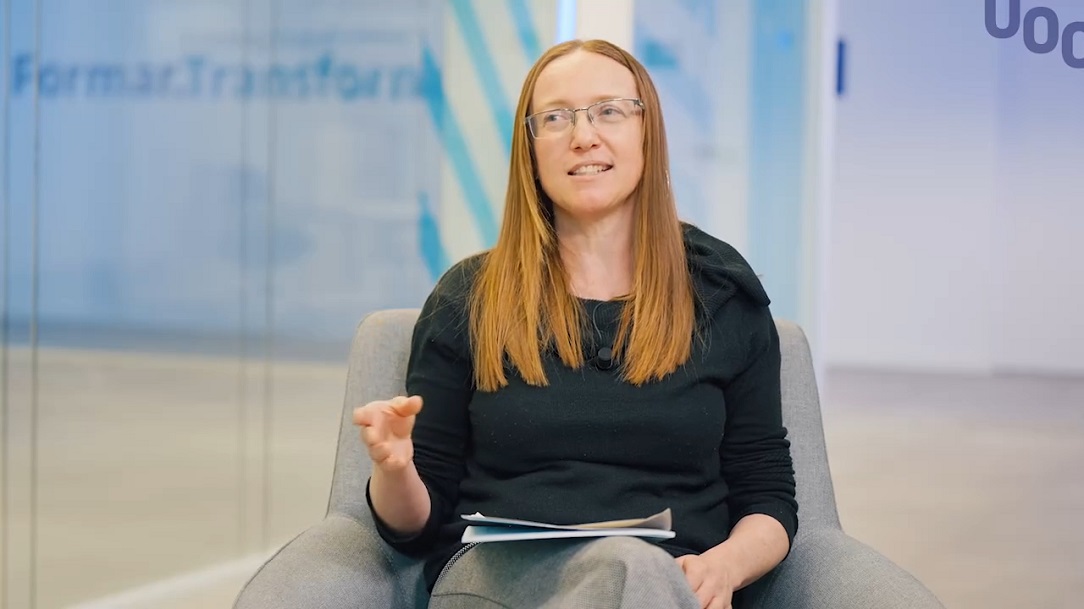On the occasion of the International Day of Women and Girls in Science, Rachel Palmén, senior researcher at GenTIC, was interviewed for UOC News by Marta Aymerich, director of the eHealth Center. In the conversation, Rachel Palmén reflects on the gender inequalities persisting in science, technology, and innovation, and emphasizes the importance of addressing them through an intersectional approach, which considers inequalities and discrimination occurring on multiple, intersecting axes, including gender, race, age, sexual orientation, and others.
Rachel Palmén highlights gender inequalities in science and innovation in Europe and discusses how they vary across different fields of knowledge. For instance, women are overrepresented in education but significantly underrepresented in information, communication, and technologies, as well as in manufacturing and construction. These disparities also exist across the academic ladder, as the proportion of women decreases at the higher levels of the academic career. Moreover, these gender disparities have implications in the labor market, where women are underrepresented as science and technology professionals and entrepreneurs in the ICT sector.
Furthermore, Rachel Palmén underscores the importance of integrating a gender dimension into all aspects of research and development processes. She emphasizes that involving a diverse population in the development of technological innovations is crucial to enhancing their effectiveness and societal relevance. In this regard, she describes several initiatives that can be implemented to promote a more inclusive research and innovation system.
Rachel Palmén is the coordinator of the Horizon Europe INSPIRE project, which aims to establish the European Center of Excellence that will develop the evidence base on inclusive gender equality in research and innovation, providing new knowledge and support tools through diverse hubs led by academics and practitioners across Europe and Latin America. The project also establishes 12 Communities of Practice where universities, research organizations, and private companies can collaborate and share their experiences.
Watch the complete interview here:
